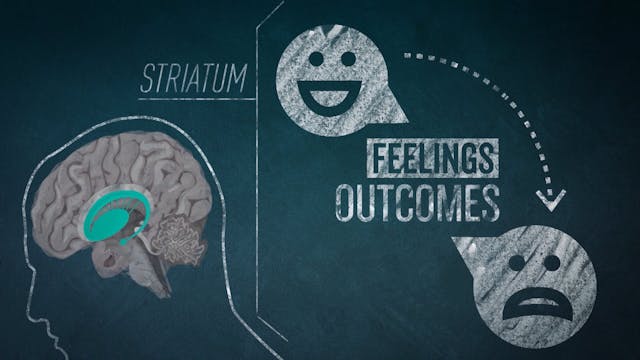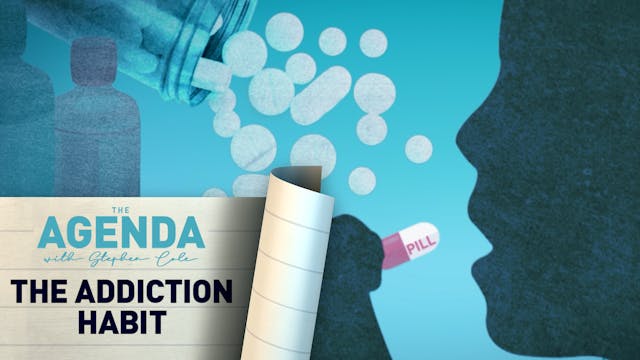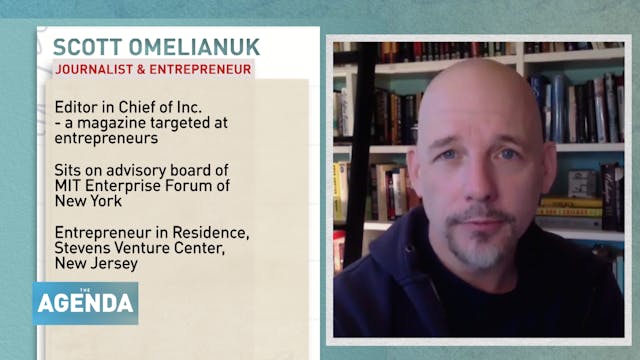Drugs in Europe: A developing fight - #TheAgenda with Stephen Cole
The Agenda
•
8m 52s
WHAT’S THE ISSUE?
The financial cost of addiction to the world’s healthcare providers runs into trillions of dollars.
And, while the treatment and understanding of the addict is improving all the time, the number of people with a dependence on a substance or activity is continuing to rise – to take just one example - one in twenty adults globally is thought to use illegal drugs regularly.
So this week, The Agenda with Stephen Cole is looking at addiction – and what the world can do to kick the habit.
MEET THE EXPERT
Alexis Goosdeel is the Director, European Monitoring Centre for Drugs and Drug Addiction – the EU’s reference point on drug usage for its member states. It’s designed to deliver “factual, objective, reliable and comparable” information about drug use and addiction.
Alexis has been part of the EMCDDA for many years, and he talks to Stephen about recent developments in the drug situation in Europe, the increased numbers of drug seizures, the changing nature of the street drugs available, and new ways of treating Europe’s addicts.
WHAT DOES GOOSDEEL SAY?
“The picture is threatening”, he tells Stephen Cole: “96 million adults in the Eu aged between 16 and 64 have tried an illicit drug in their lifetime – and 1.2 million are now in treatment for problematic drug use.”
He details the growing amounts of illegal drugs being seized by European police – and the worrying concern that in spite of that, much of the supply is still getting through to addicts.
What’s most worrying he says is the strength of the drugs available. “We’ve observed an increase in demand for treatment of addiction issues related to cannabis” he says: “At the time of Woodstock in the 1960s the concentration of THC [Cannabis’ active ingredient] was around four percent…. today, that can go up to 24%.”
THE KEY QUOTE
“The situation is changing… and bringing new challenges”
WHAT’S NEXT?
“The EU is unique”, Goosdeel tells Stephen: “in that for more than 20 years it has designed collective strategies for all its member states. But we have to be realistic – and not pretend to be able eradicate the drug problem completely.”
“We need to regularly re-evaluate the drug strategy” he adds – emphasizing that has to include international collaboration beyond the boundaries of the EU.
Watch #TheAgenda in full and find out more at: https://www.cgtn.com/europe/the-agenda 📲
Follow CGTN Europe on social media and other platforms👇🏼 https://stories.cgtneurope.tv/follow-cgtn-europe/index.html
Up Next in The Agenda
-
Addiction explained - #TheAgenda with...
Where once most addicts were considered weak and had only themselves to blame, times have changed, and addiction is now defined as a disease.
But as times change, the kinds of things we become addicted to change too, as does the number of people who fall victim to addiction.Here, The Agenda's ...
-
The Addiction Habit - #TheAgenda with...
Addiction is a multi-trillion-dollar problem from which no country is entirely immune.
Experts describe it as a disease that alters our brain, making us a slave to a substance or an activity.
But just how do we become addicted to drugs, alcohol, cigarettes, food and so on? What are the human a...
-
What drives an entrepreneur? #TheAgenda
"They all have an idea. They all believe wholly in their idea," Scott Omelianuk, editor in chief of Inc. magazine, says about what makes an entrepreneur. #TheAgenda
Read more: https://newseu.cgtn.com/news/2021-02-22/What-drives-an-entrepreneur-Scott-Omelianuk-says-ideas-are-key-Y1gtepx1tK/index....



